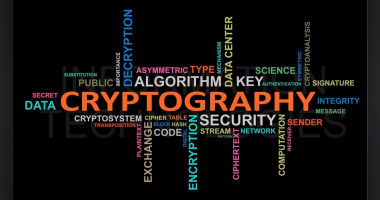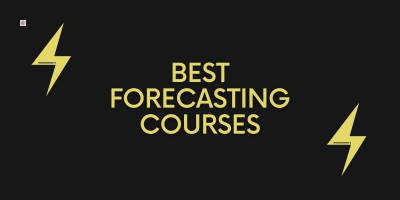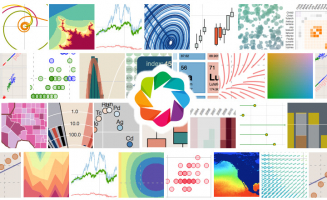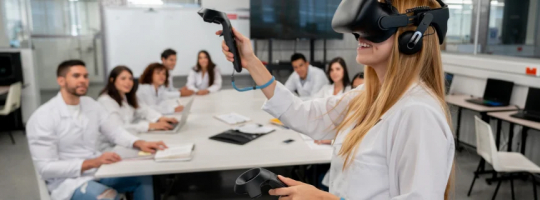Top 8 Best Online Neuroscience Courses
Are you wondering which remote classroom to attend? To satisfy the burgeoning demand for online yet qualifying courses, Toplist has complied a rundown of the ... read more...Best Online Neuroscience Courses offered by the prestigious universities, famous companies, top organizations and knowledgeable instructors across the globe for who in need!!!
-
Medical neuroscience focuses on the functional organization and neurophysiology of the human central nervous system, as well as providing a neurobiological framework for analyzing human behavior. The structure of neural networks in the brain and spinal cord that modulate sensation, motivate bodily action, and integrate sensory signals with memory, emotion, and related cognition faculties will be explored in this course. The main purpose of this course is to lay the groundwork for understanding the sensory, action, and cognition impairments that occur as a result of central nervous system damage, disease, or malfunction. As we focus primarily on the central nervous system, the course will draw on information gained from past studies in cell and molecular biology, general physiology, and human anatomy.
Medical Neuroscience Offered By Duke University is, in fact, among the Best Online Neuroscience Courses. This online course covers all of the essential principles in neurophysiology and clinical neuroanatomy that are included in most first-year neuroscience courses in medical schools. However, there are some topics (e.g., biological psychiatry) and learning experiences (e.g., hands-on brain dissection) that we do not aim to replicate in Medical Neuroscience online in the analogous course provided on campus at Duke University School of Medicine. Nonetheless, our goal is to faithfully offer a medical school-level course experience in terms of scope and rigor.
This course offers:
- Flexible deadlines: Reset deadlines in accordance to your schedule.
- Certificate : Earn a Certificate upon completion
- 100% online
- Advanced Level
- Approx. 71 hours to complete
- Subtitles: Arabic, French, Portuguese (European), Italian, Vietnamese, German, Russian, English, Spanish
Coursera Rating: 4.9/5.0
Enroll here: https://www.coursera.org/learn/medical-neuroscience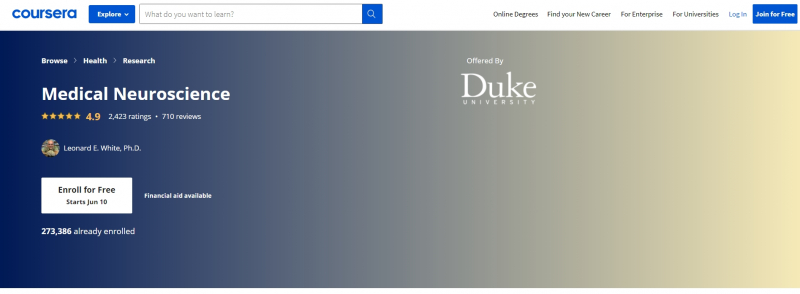
https://www.coursera.org 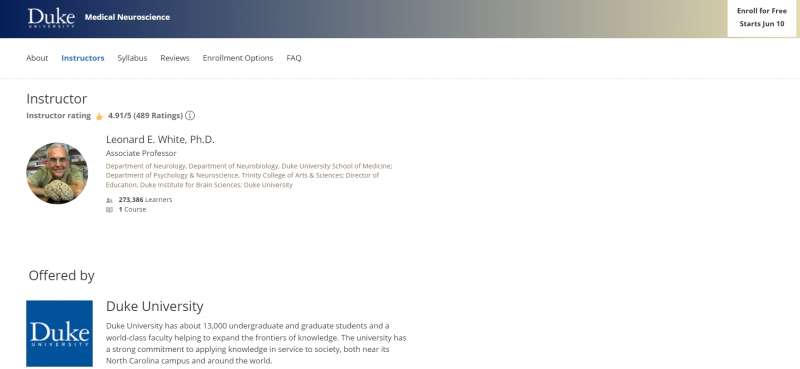
https://www.coursera.org - Flexible deadlines: Reset deadlines in accordance to your schedule.
-
Neuroscience and Neuroimaging Specialization Offered By Johns Hopkins University ranks sencond on the list of the Best Online Neuroscience Courses. This specialization brings together the strengths of four different neuroscience courses into a single learning experience. It starts with basic neuroscience ideas for neuroimaging and is taught by Johns Hopkins University. Neuroimaging techniques are becoming more widely used in clinical treatment and basic research. It begins with a discussion of brain neuroanatomy before moving on to neuroimaging principles, such as experimental design in neuroimaging, functional connectivity MRI, diffusion tensor imaging, and spectroscopic imaging.
The specialization continues with two courses on Functional Magnetic Resonance Imaging (fMRI), one of the most frequently used tools for researching the living, functioning human brain as people execute tasks and experience mental states, and a site of confluence for multidisciplinary work.Finally, using publically available structural MRI, the specialization advances into implementation of neurohacking using the R programming language and associated packages to do data modification, processing, and analysis of neuroimaging data.
This course offers:- Flexible Schedule: Set and maintain flexible deadlines.
- Certificate : Earn a Certificate upon completion
- 100% online
- Intermediate Level
- Approx. 4 months to complete: Suggested pace of 3 hours/week
- Subtitles: English, Arabic, French, Portuguese (European), Italian, Vietnamese, German, Russian, Spanish
Coursera Rating: 4.7/5.0
Enroll here: https://www.coursera.org/specializations/computational-neuroscience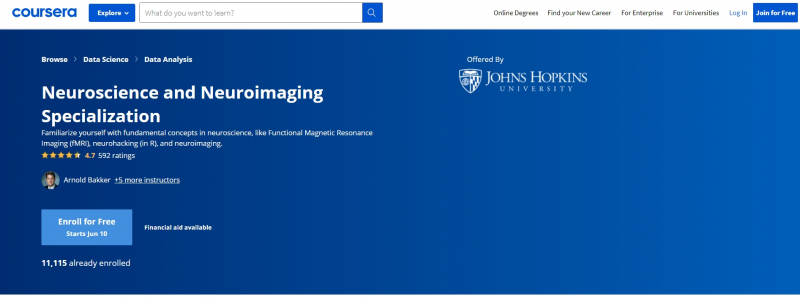
https://www.coursera.org 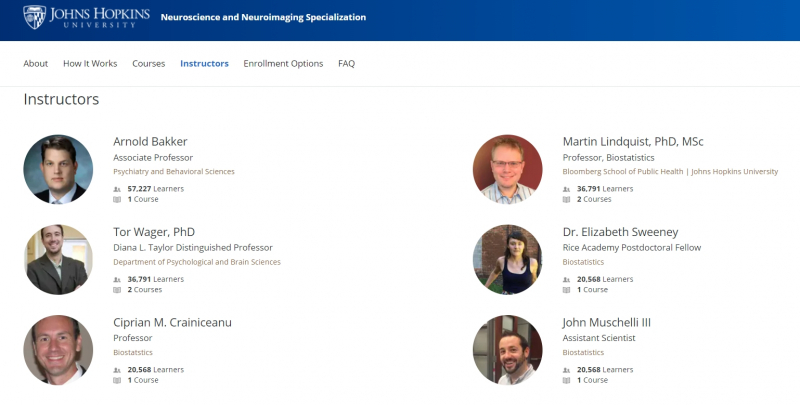
https://www.coursera.org - Flexible Schedule: Set and maintain flexible deadlines.
-
Computational Neuroscience Offered By University of Washington introduces students to basic computational approaches for discovering how neural systems work and understanding what they do. We'll look at the computational principles that regulate vision, sensory-motor control, learning, and memory, among other things.
Spiking neurons will be used to represent information, neural networks will be used to process information, and techniques for adaptation and learning will be covered. To get a better knowledge of the concepts and methodologies covered in the course, we will employ Matlab/Octave/Python presentations and exercises. The course is primarily intended for third- and fourth-year undergraduates, as well as professionals and distance learners, who are interested in studying how the brain processes information.
This course offers:
- Flexible deadlines: Reset deadlines in accordance to your schedule.
- Certificate : Earn a Certificate upon completion
- 100% online
- Beginner Level
- Approx. 26 hours to complete
- Subtitles: Arabic, French, Portuguese (European), Italian, Vietnamese, German, Russian, English, Spanish
Coursera Rating: 4.6/5.0
Enroll here: https://www.coursera.org/learn/computational-neuroscience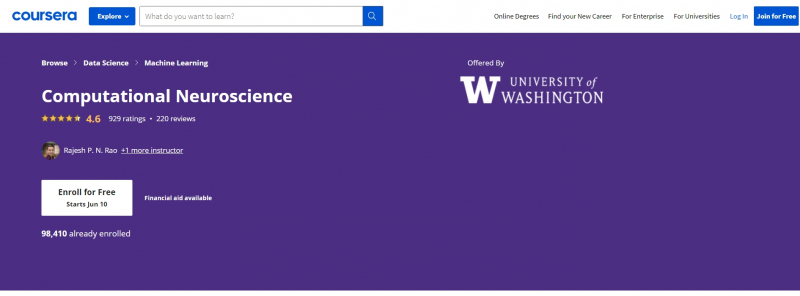
https://www.coursera.org 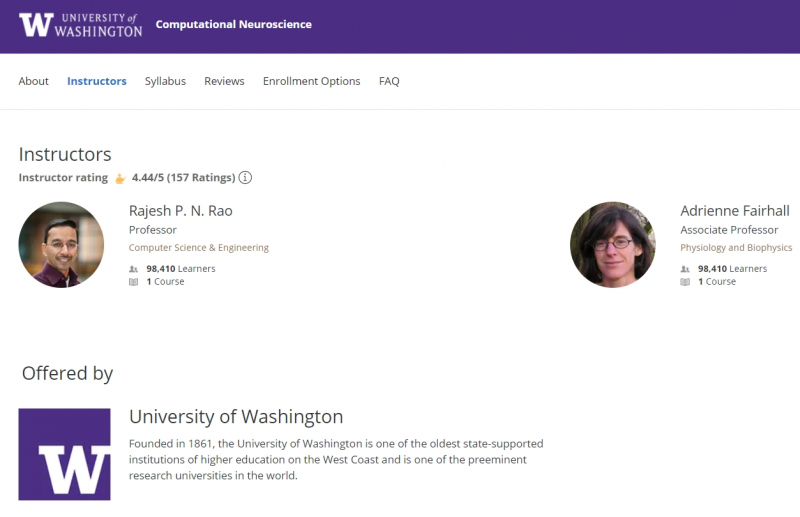
https://www.coursera.org - Flexible deadlines: Reset deadlines in accordance to your schedule.
-
Neuroimaging techniques are becoming more widely used in clinical treatment and basic research. This course is designed for students and professionals and will cover the fundamental principles of neuroimaging methodologies as they apply to human subjects research, as well as the neuroscience ideas and terminology needed for a basic grasp of neuroimaging applications. The course covers the history of neuroimaging, an overview of different neuroimaging applications, such as functional MRI, diffusion tensor imaging, magnetic resonance spectroscopy, perfusion imaging, and positron emission tomography imaging, as well as an introduction to neuroimaging physics and image formation.
Each will be evaluated in terms of its unique methodology, signal source, goals, and constraints. The course will also cover core neuroscience concepts such as structural and functional human neuroanatomy, cognitive domains, and experimental design that are important for understanding the implementation of neuroimaging methodologies.
This course offers:
- Flexible Schedule: Set and maintain flexible deadlines.
- Certificate : Earn a Certificate upon completion
- 100% online
- Beginner Level
- Approx. 9 hours to complete
- Subtitles: Arabic, French, Portuguese (European), Italian, Vietnamese, German, Russian, English, Spanish
- Course 1 of 4 in the Neuroscience and Neuroimaging Specialization
Coursera Rating: 4.6/5.0
Enroll here: https://www.coursera.org/learn/neuroscience-neuroimaging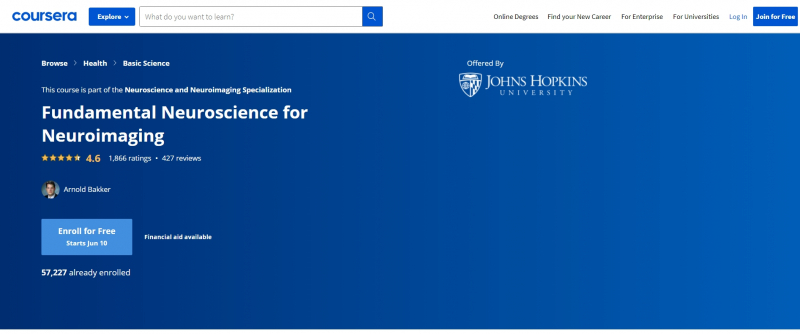
https://www.coursera.org 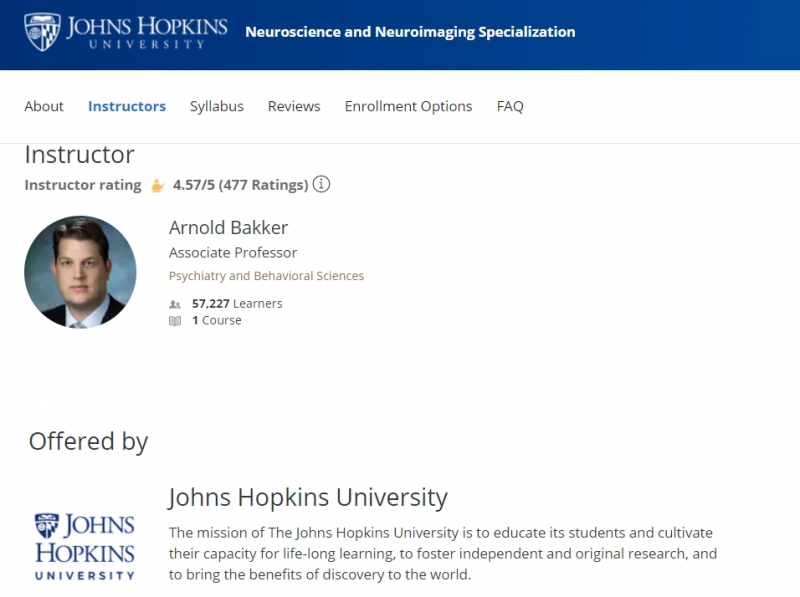
https://www.coursera.org - Flexible Schedule: Set and maintain flexible deadlines.
-
As customers, how do we make decisions? What do we focus on, and how do our first reactions anticipate our eventual decisions? To what extent are these processes unconscious and so unobservable in reports?
An Introduction to Consumer Neuroscience & Neuromarketing Offered By Copenhagen Business School will give you an overview of some of the most fundamental methodologies used in the disciplines of consumer neuroscience and neuromarketing. You'll learn about the various strategies used and what they imply. You'll learn about the fundamental brain mechanisms that influence consumer decision, as well as how to keep current on these topics. The course will provide an overview of how neuroscience is being used in business today and in the future.
This course offers:
- Flexible deadlines: Reset deadlines in accordance to your schedule.
- Certificate : Earn a Certificate upon completion
- 100% online
- Beginner Level
- Approx. 26 hours to complete
- Subtitles: Arabic, French, Portuguese (European), Italia
Coursera Rating: 4.7/5.0
Enroll here:https://www.coursera.org/learn/neuromarketing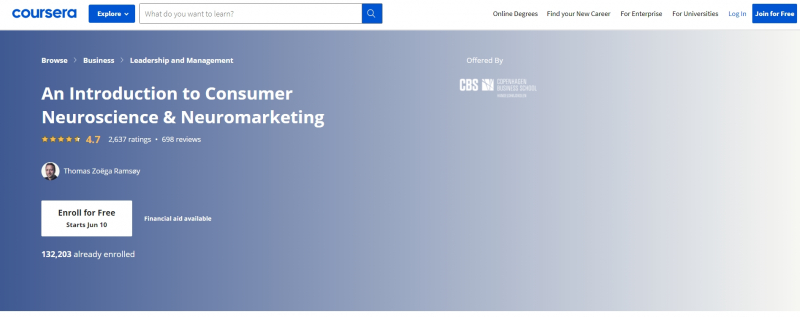
https://www.coursera.org/ 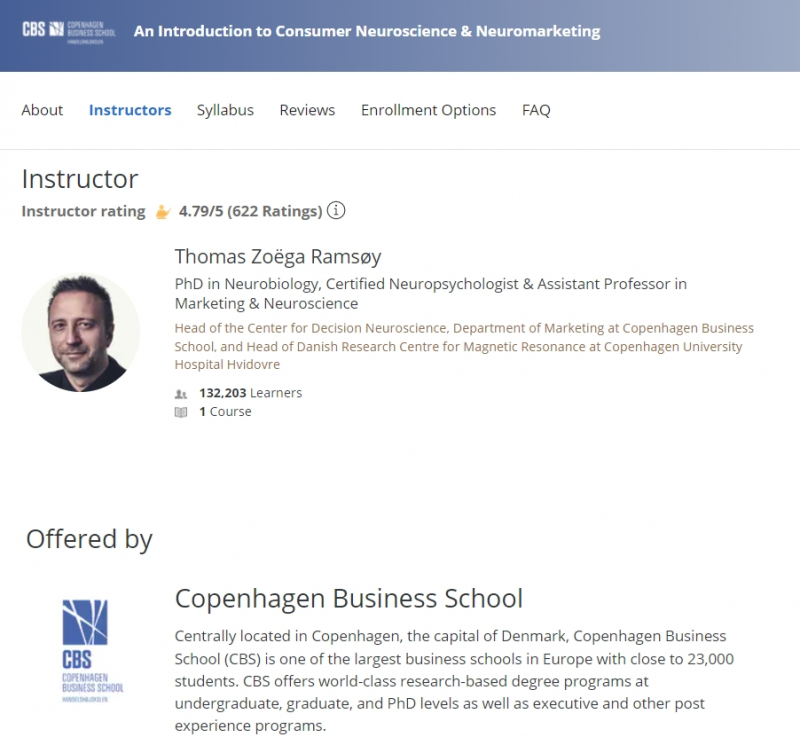
https://www.coursera.org/ - Flexible deadlines: Reset deadlines in accordance to your schedule.
-
The NBA (Neurocognitive and Behavioral Technique) is an interesting, unique, and multi-disciplinary approach that has been developed over the course of 25 years of scientific research. It brings together domains such as neuroscience, social psychology, behavioral sciences, and others to create a single, overarching theory that provides unique insights into our complicated human nature. J. Fradin, a French scientist, was the first to develop it.
This course was created to make his work accessible to everyone, regardless of their background or prior knowledge. This course is so much more than a pile of recorded lectures. It's really almost a living, breathing entity, a work in progress, that continues to evolve over time.
Requirements:
- A keen interest in human behavior is the only real prerequisite for this course
- No previous knowledge required
- No specific materials are needed for this course. Taking notes is recommended
- At different stages in the course, there will be questions presented about your own life and how you think and feel about some topics. It is important you answer them for yourself before you move on with the course
- At different stages in the course, you will be invited to do some exercises. Concrete examples will be presented, however it is important you do the exercise yourself as well
Who this course is for:
- Anyone with an interest in human behavior
- Individuals looking for personal development
- Professionals who want to improve on their people skills
- This course is not for people looking for ways to manipulate others. It's about empowering, not taking power away from others
Subtitles: English [Auto], French [Auto], German [Auto], Italian [Auto], Polish [Auto], Portuguese [Auto], Spanish [Auto]
Udemy Rating: 4.5/5.0
Enroll here: https://www.udemy.com/course/neuroanatomy/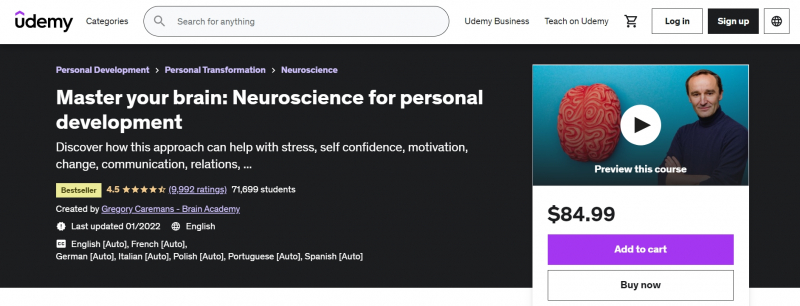
https://www.udemy.com 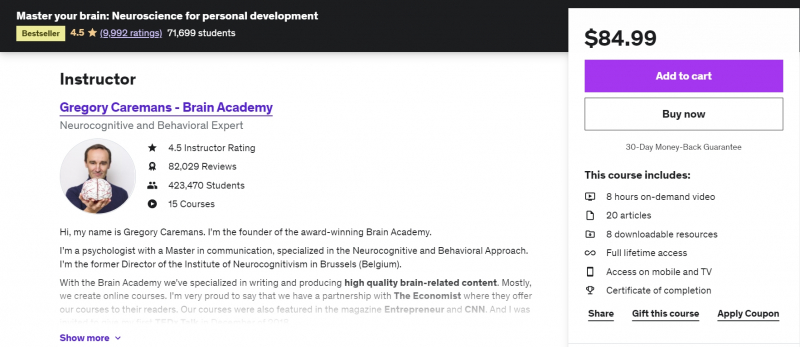
https://www.udemy.com -
This course provides a thorough overview of how electroencephalography (EEG) is used in cognitive neuroscience and psychology, as well as in clinical settings.
You will learn about the interesting science of EEG through informative movies. Academic and commercial researchers, as well as physicians, can now peer into the depths of the human brain to understand how it impacts perceptions and interactions with the environment, thanks to recent advances in neuroimaging techniques. EEG is one of the most adaptable brain imaging modalities. EEG uses electrodes put on the scalp to capture the electrical activity produced by the brain's neurones. The ability to measure electrical activity in the brain is useful because it shows how the many different neurons in the brain network connect with one another via electrical impulses.
This course was created from the ground up by an experienced instructor with a background in cognitive neuroscience and psychology. The fundamentals of neuroanatomy and neurophysiology will be covered, as well as the history of EEG, the purpose of recording brain electrical activity, how EEG data is collected and analyzed, and how an EEG signal is turned into event-related potentials (ERP). The data is presented in a fun and easy-to-understand manner. It is mostly intended for people who wish to get into this sector as well as others who are interested in cognitive neuroscience and psychology and want to learn about various brain applications.Requirements:
- A keen interest in psychology, neuroscience, and/or electrophysiology is the only real prerequisite for this course
- No previous knowledge required
- No specific materials are needed for this course, but taking notes is recommended
Who this course is for:
- Everyone who wants to understand the human brain
- Everyone interested in psychology, neuroscience, and/or electrophysiology
- Students (or prospective students) in psychology, neuroscience, or medical schools
- Psychologists
- Neuroscientists
- Clinicians
- People working in neuromarketing or biomedical engineering
Subtitles:English
Udemy Rating: 4.8/5.0
Enroll here: https://www.udemy.com/course/electroencephalography/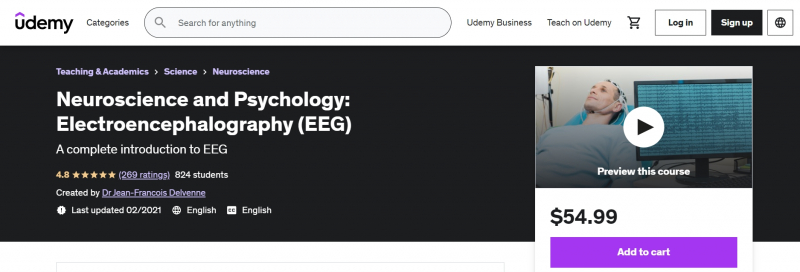
https://www.udemy.com 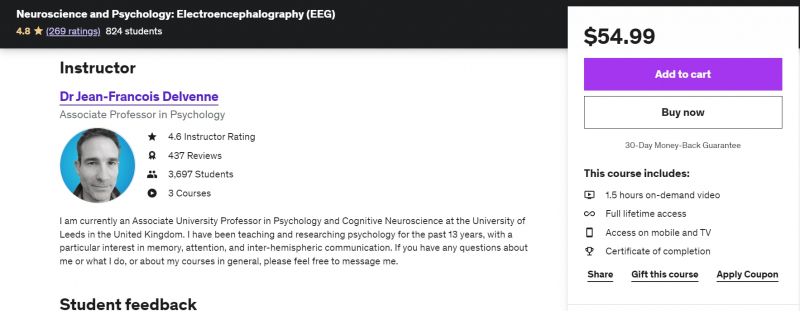
https://www.udemy.com -
People have long believed that the neuroplasticity of the brain does not alter. They believed the neuroplasticity brain was fixed in its connections. However, people now have a better understanding of it.
When we conduct any activity, such as reading, tennis, or cooking, certain neurons in our neuroplasticity brain activate. Specific connections develop stronger, while others become weaker, depending on which neurons are activated. This is what Neuroplasticity and Neuroscience are all about.
As your coach, I'll not only teach you THE BEST SKILLS AND IDEAS for improving your mental neuroplasticity and neuroscience performance, but I'll also be there to assist you as you study and practice. Take advantage of your neuroplasticity and neuroscience brain powers to gain real-world skills that will last a lifetime.Requirements:
- An open mind for learning.
- A commitment to apply the material.
- A notebook and pen!
- There's nothing to buy or pay for - everything is included for free!
Who this course is for:
- Business owners, writers, teachers, or anyone who regularly creates, brainstorms, and manages ideas, people, and tasks.
- The course is recommended to people who have a particular target in mind and people who want to first select the right goal.
- The course is designed for people who want to start a new project, change their habits, or work towards some other desired state.
Subtitles:English [Auto], Indonesian [Auto], Italian [Auto], Polish [Auto], Romanian [Auto], Thai [Auto]
Udemy Rating: 4.7/5.0
Enroll here: https://www.udemy.com/course/modern-neuroplasticity-how-to-rewire-your-brain-for-success/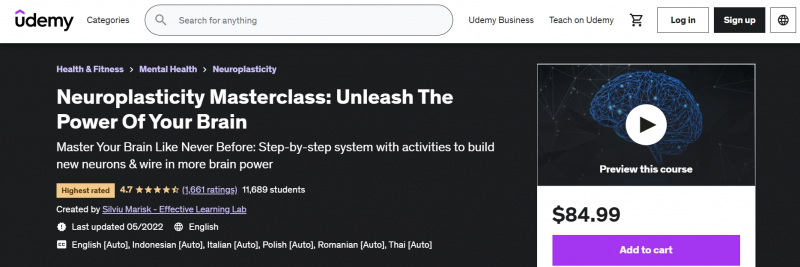
https://www.udemy.com 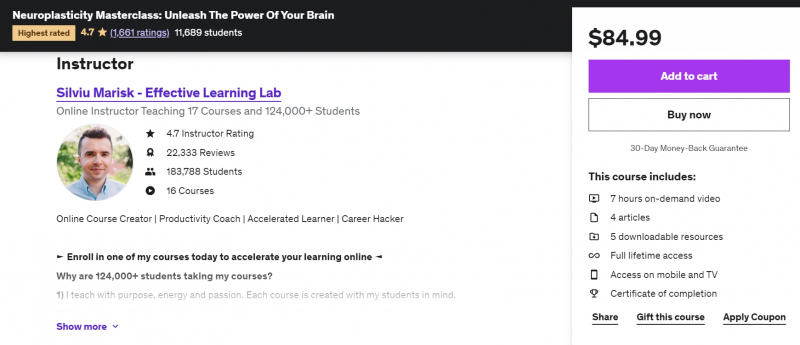
https://www.udemy.com













